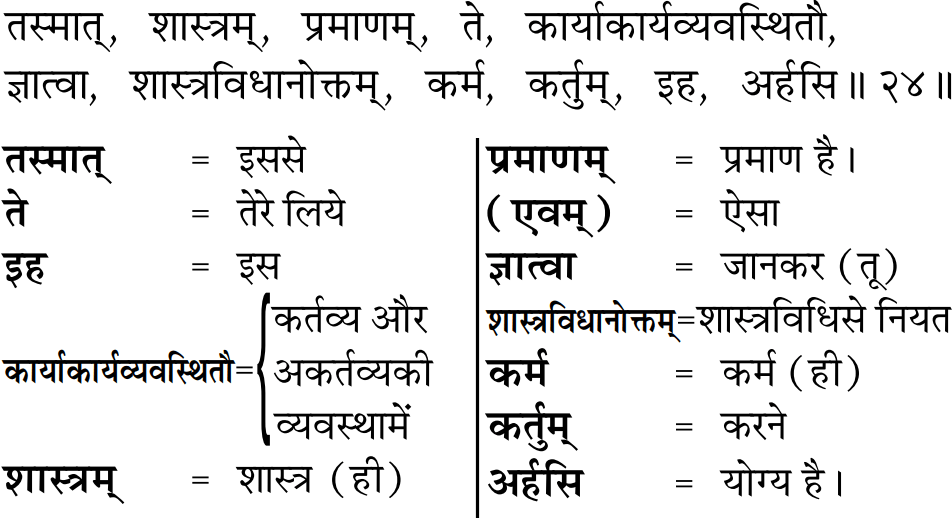Gita 16.24
तस्मात्, शास्त्रम्, प्रमाणम्, ते, कार्याकार्यव्यवस्थितौ,
ज्ञात्वा, शास्त्रविधानोक्तम्, कर्म, कर्तुम्, इह, अर्हसि।।24।।
Gita 16.24
Tasmaat’, shaastrm’, prmaanm’, te, kaaryaakaaryavyavasthitau,
Gyaatva, shaastrvidhaanoktam’, karm, kartum’, ih, arhasi ||24||
Translation: (Tasmaat’) therefore (te) for you (kaaryaakaaryavyavasthitau) in the state of what should be done and what should not be done (shaastrm’) only scripture (prmaanm’) is evidence (ih) this (gyaatva) knowing (shaastrvidhaanoktam’) in accordance with the ordinances of the scriptures (karm) acts (kartum’) to be performed (arhasi) should be / worthy of. (24)
Translation: Therefore, in the state of what should be done and what should not be done, Scripture is the only evidence for you. Knowing this, only those acts should be performed, which are in accordance with the ordinances of the scriptures.
Bhagavad Gita Chapter 16 Verse 24

Bhagavad Gita Chapter 16 Verse 24 - Purport
Only scripture based worship is fruitful and that is what should be followed. Outside the scriptures, any type of religious practice or ritual is arbitrary and self made and therefore useless. The narrator of Bhagavad Gita is attributing the word scripture only to vedas or the speech of Supreme God. There were no other scriptures at the time the knowledge of Gita was being delivered.
← Bhagavad Gita Chapter 16 Verse 23